‘Never apologise for being you’: disabled celebrities’ letters to their teenage selves | Life and style
If being a teenager is hard for everyone, being a disabled teenager can feel like a slog. No longer protected by the relative simplicity of childhood, you are confronted with the realities of your disabled body and, perhaps harder still to fathom, your place in a profoundly ableist society.
Failed by a system that leaves you dependent on care from your family while your peers explore independence, you will often feel trapped and isolated. Teenagers don’t want to be seen as different – or even be associated with difference – and so you are avoided, ostracised. It can be incredibly tough.
Memories of my own teenage years are still strong enough, 10 years on, to cause panic to rise like a wave in my chest. One of the things I most vividly remember is fear. Fear that I wouldn’t achieve anything, fear that I would always be lonely. Fear, most of all, that things would never get better.
While all this is going on, the state-funded support networks you are used to fall away, as the arbitrary leap from children’s to adults’ services is rigidly enforced. Which is where Roald Dahl’s Marvellous Children’s Charity comes in, providing specialist nurses in hospitals, who can help navigate this complicated transition.
There are now 82 of these nurses, and the organisation is launching an appeal to fund more; the appeal includes an ebook with the potential to do so much good. It brings together letters from disabled adults to their younger selves, each telling a different story resonating with the same powerful message: it won’t always be like this. It will be OK.
What makes this collection so special is that all these people know what they are talking about. In those darkest moments, I was surrounded by well-meaning able-bodied adults telling me that everything would change once I was older, and I used to look at them and think: what the hell do you know?
Eventually, hearing that message from people who looked like me was the first step towards the happy, fulfilled life I live now. With luck, these letters can do the same for others.
And in case a disabled teenager is reading this, let me add my voice to the chorus: just hold out, better days are nearly here.
LW
Rosie Jones, comedian

Dear Rosie,
It’s me, the older and (questionably) wiser version of you. You’ll never guess what … they have found a cure for cerebral palsy. You’re able-bodied!
JOKE! You’re still disabled, but, as ever, you wouldn’t have it any other way.
You’re expecting me to tell you something deep and profound but, honestly, just keep on doing you. Most importantly, keep on telling jokes because one day you will make a living from them.
If I could give you one teeny piece of advice, though, I’d say, never apologise. Naturally, you will do things that you should say sorry for, but I mean the bigger stuff: never apologise for being you. You’re loud, you’re annoying, you’re goofy, you’re disabled and (spoiler alert) you’re gay.
These are not new things – you’re already aware of them – but sometimes you hide them because of what other people might think. Stop it. Those are the qualities that make you you. Be proud of them, because they make you stand out from the crowd.
PS: Stop wearing bodycon dresses. Buy dungarees. You look great in dungarees.
Victoria Ekanoye, actor
Hey you,
Is today a good day or a bad day? I know it can be tough not knowing what you’ll wake up to, but I’m so, so proud of how well you’re doing. It may not seem like it right now, but I promise there is so much joy and happiness coming your way. You’re unique and brave, and one day you will be an inspiration to others! Just remember, each time you have a crisis, the pain is only temporary. Try your best to breathe through it and focus on how much better you’ll feel when it’s over.
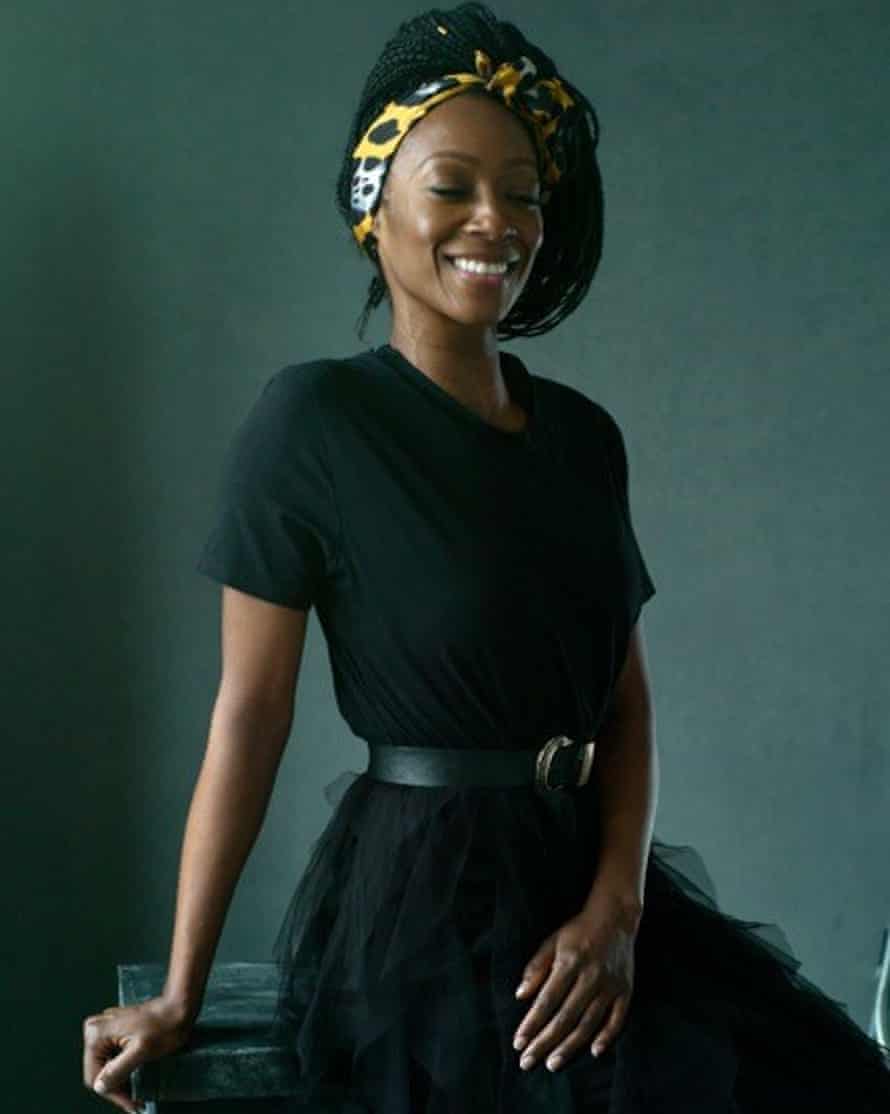
Think of your body like a plant – plants need food and water and light. Sometimes they even need medicine, too, but most of all, they need love. To be taken care of. And you’re the best person for the job! Eat your greens, plenty of fruit and vegetables, lots of water every day, and try to get some fresh air and exercise so that your body can cope well with your sickle cell disease. Everyone likes a treat, so there’s no need to deprive yourself; just think of it as a reward for treating your mind and body so well.
If you’re feeling low or sad, talk to someone. It’s so important that you share your feelings with someone you trust; you never know, they may be able to give you advice that will make life feel a little better.
Just between us, I still feel it’s a little unfair sometimes that I have this constant hurdle to jump over, but we’re athletes and our specialist sport is LIFE! Be kind to yourself and understand that you are loved and special and there is no one like you in the whole world.
Blaine Harrison, lead vocalist, Mystery Jets
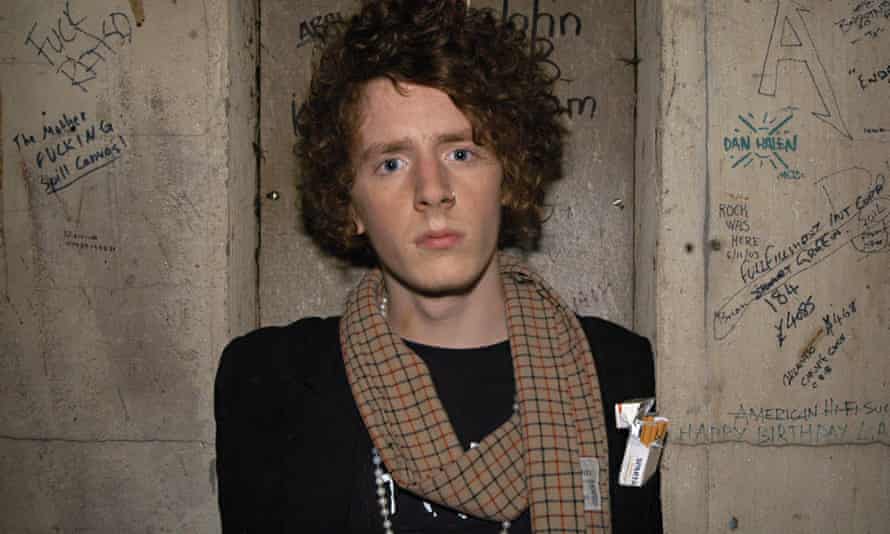
Dear Blaine,
I’m in my mid-30s now and the world I live in is experiencing great unforeseen woes, but you have more than enough of your own, so don’t waste time worrying about mine. Born British and uprooted to France, you’ve always felt unsure of where you belong. But you will come to look back on the feral freedom of your childhood years as some of your happiest.
You view your spina bifida as a negligible hindrance, and refuse to let it stop you hurling yourself down hills in your wheelchair or over dirt jumps on your BMX.
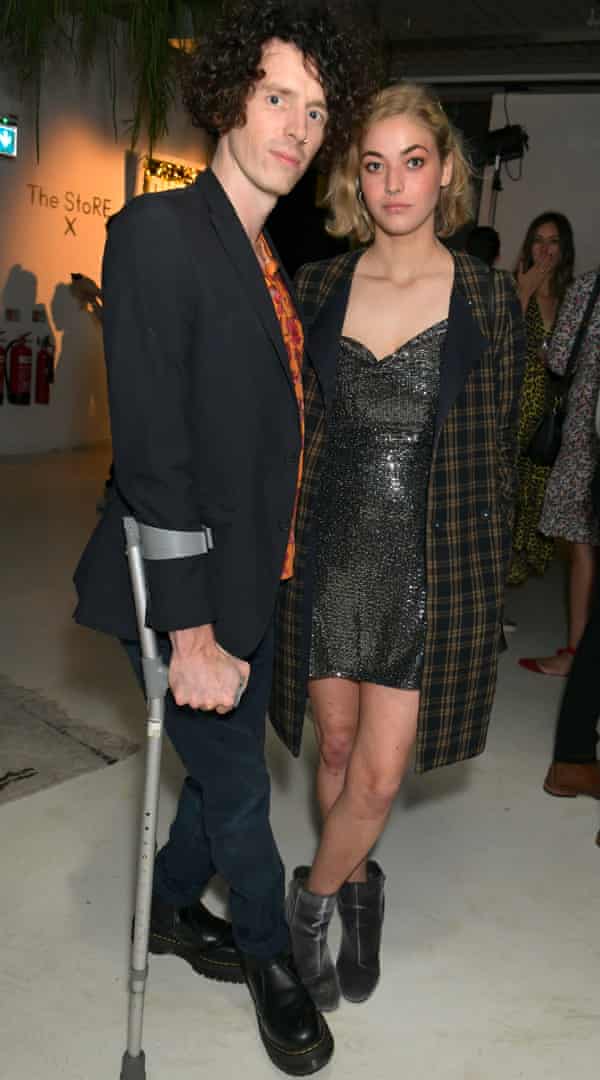
The trials of your early teens will be horrid. A time of tedious hostility. School meatheads will kick your chair and call you names. Not wanting to be labelled a “snitch”, you’ll take your anguish out instead on people who love and accept you as you are (you’ll be sorry for this).
Some mornings you will convince poor Mum to call in sick for you, dreading what horrors await at the school gates. But other days you will fight back. Never stop fighting back.
Solitude is your oldest friend, but it seldom finds you lonesome. Though you’ll never be a pack animal, you’ll soon meet fellow adventurers who also carry the fire. Stick with the warm people – you’ll have plenty of time to be cool when you’re dead. So young adventurer, go seek refuge in the school’s art department, where you’ll find a safe space among the canvases and turpentine.
Music has also long been calling your name – you’ll find a drum set in one of the practice rooms to help channel your angst. Over the coming years, songs will fall from the sky and into your lap from time to time. Their arrival will bring you great comfort, as it will to many others.
Before long, a beautiful classmate with a blond ponytail and a blue bowling bag will enter your world and turn it upside down. You will recognise something in her that mirrors something in you. When you decide to leave your wheelchair in the car boot one morning and take up crutches instead, it will be so that your eyes can meet hers on the same level. She’s also the reason you’ll take up smoking. I’m sorry to tell you that in time she will slip through your fingers. But before she does, she will ask for your hand to the leavers’ ball. And you’ll never sit back down in your wheelchair again.
Society’s view of disabled people will slowly change between your time and mine, and in due course, the wider public will begin to realise what we’ve known all along: it is the world surrounding us that is disabling, not the other way around.
You don’t see people like “us” on TV, on billboards or headlining festivals, so get out there and help create space for the kind of role models that people like us wish we’d had.
Cerrie Burnell, actor
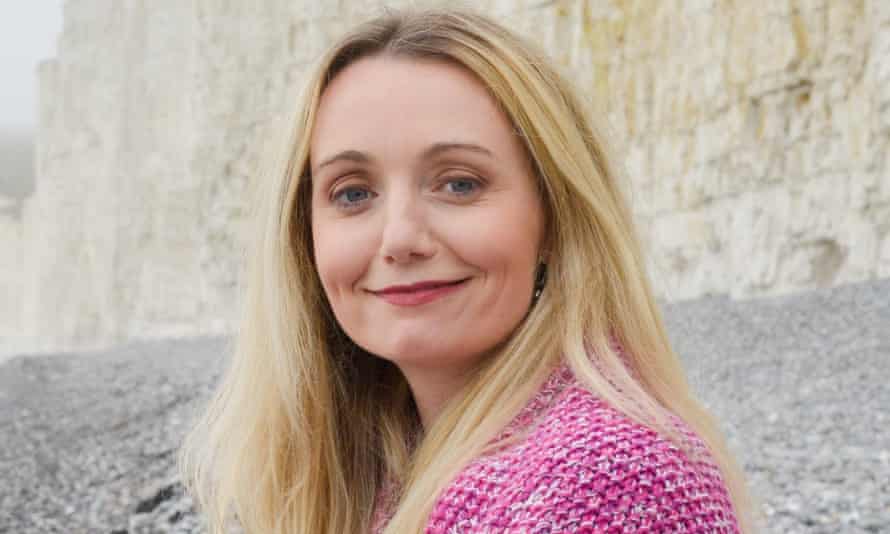
Lovely girl,
There is nothing I can tell you about how – or who – to be because you never listen to anyone. Not really.
You are your own storm and, with time, will be your own lighthouse.
This is not always an easy way to be, but you are not drawn to easy pleasures. And yet you find joy in humble, bright things. Sunshine. The sound of the gulls. The moon at midnight. Don’t lose these things, even if no one else appreciates them – keep saving them up in your heart because one day you will weave them into stories. The most radiant and rebellious thing you can do is to fall in love with your body. And you will. You will appreciate all of your femininity, physical strength and unexpected grace. But it will take work.
Luckily you are not afraid of hard things. It’s the simple things like finding your keys that floor you. That never changes – your keys will always remain a great mystery!
Things will be calmer, but not yet. There are so many adventures you need to go on first. Your determination will be your greatest asset. It will get you in and out of trouble. It will get you to exactly where you need to be. One day you will step through a door and discover you have been fighting the wrong fight. All of the years you spent refusing to be defined by your disability were only because you had been told that being disabled wasn’t beautiful or alluring, or desirable. You will learn this is a lie and that being part of the disabled community is the most wonderful, glorious thing ever. Getting the world to understand this is the real fight. You have much work to do.
So shine your light for the world to see – and never stop smiling.
Frances Ryan, journalist
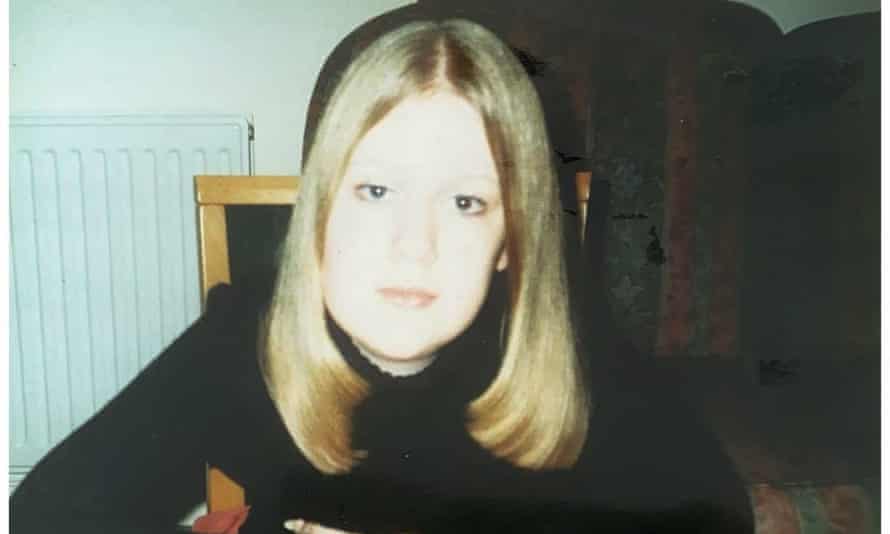
Hello darling,
I’m proud of you. I should say that from the off. I’m proud of all the things that you will go on to achieve: a PhD; your first book; a column in a national newspaper; the perfect blow dry. I’m proud of the fact you did it all with low-grade muscles, fatigue, pain, steps and more chest infections than you can count.
You will be fearless with your health and it will only occasionally get you in trouble. Hold on to that – it is your greatest strength.
Don’t let anyone restrict you, doubt or patronise you. Low expectations are not a natural side-effect of disability. You have more potential than you can dream of.
There will be bumps along the way, at least one particularly big one. But don’t worry. Health is not linear, it ebbs and wanes and you will ride every wave. It is OK to cry. You will laugh too. Lots. You will drink wine in gardens with friends you love. You will speak in front of vast crowds and beam over the radio. You will tour cities with bright lights and see art, plays, and music.
Savour every moment and store them like light for the darker days.
Do not get the pink wheelchair. You won’t be able to afford a new one until you’re 17 and no one wants to go to sixth form looking like Barbie on acid.
You will want independence – your own accessible home, dating, a support team – and feel frustrated at the wait.
You are not in competition with your non-disabled peers, nor a hypothetical healthy version of yourself. There is no timeline. It is not a race. The destination changes and is none the worse for it.
Stretch. Move, even when it doesn’t feel necessary. There will come a day when your body needs more help and you will be grateful you gave it a head start.
You will thrive at university. It will be a little scary to be the first generation in your family to study for a degree, and you will often be the only disabled person in the room. But that’s OK.
You will learn and grow and be inspired. One day you’ll even teach.
Try salad before your 25th birthday – vitamins and minerals are your friend – but don’t neglect pizza and crisps either. Too many carbs did not wreck your genetics – despite what Instagram wellness ads tell you – but they do taste really good.
Talking of which, don’t stop going to the dentist. Yes, clinics aren’t made for wheelchairs but you deserve access to all healthcare like anyone else. That goes for cervical smears too.
Never be self-conscious about being different. Your disability is not your defining characteristic, nor an inconvenience to hide. It is a part of you, one that will make you kinder and wiser than many born in fully working order.
There are no limits to what you can do. Sure, you can’t be an elite marathon runner, or even an average one. But there is a big world out there and it is yours to explore. You will have a career you love, and spend each day with passion and purpose. Just because you don’t see anyone in the media that looks like you growing up doesn’t mean you don’t belong there.
You don’t need to avoid a doctor’s office for a decade but you don’t have to be tethered to one either. Enjoy the freedom of good periods of health and use the NHS as your helper when the bad ones come. The bad ones inevitably come, and when they do you will find yourself lifted by the type of strength that cannot be reduced by muscle weakness. Don’t be afraid to question medical professionals, or challenge them for more. You are your greatest advocate, best cheerleader and the most qualified expert on your body.
Before I go, there are just two things to always remember: how special you are to be unique, and how lucky the world is to have you.
Max Spooner, online racer
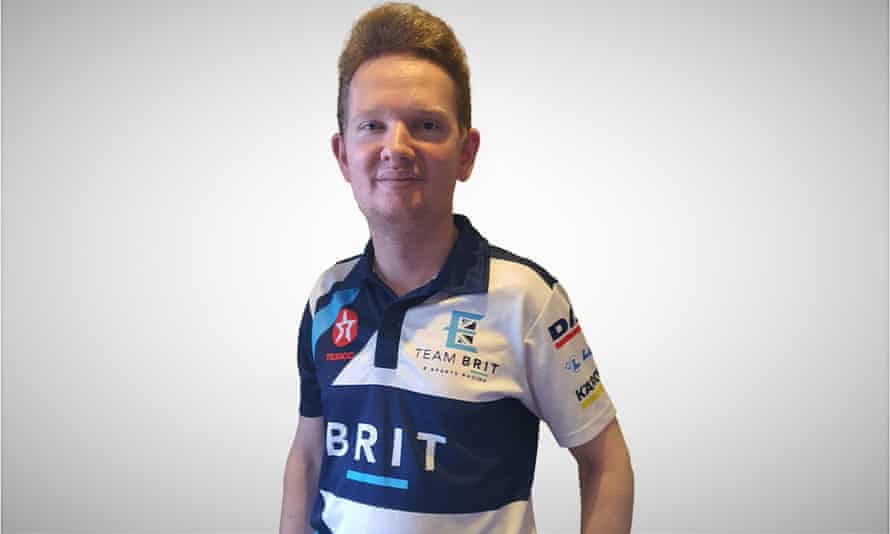
Dear Max,
Now that you’ve started secondary school, I know your feelings of being “different” are stronger than ever. You think you’re “the weird one” and are starting to feel a sense of acceptance that this is just the way things are.
Ever since you received your diagnosis of Asperger syndrome, you’ve almost used it as a “safety blanket”, blaming everything on the Asperger’s rather than looking deeper at anything else. I can’t blame you. Kids are mean!
You are different from some of the others in your classes and sometimes they really let you know it, but that will get better. They’ll grow up and grow out of it. Soon, you’ll hit your turning point. In a few years, you’ll watch London host the Olympic and Paralympic Games and see that a disability can actually drive you to focus on what you can do, not what you can’t. You’ll see stadiums full of people inspired by the most incredible athletes who certainly haven’t used their disability as an excuse, and realise that’s exactly what you want to become.
Ruth Fairclough, mathematician
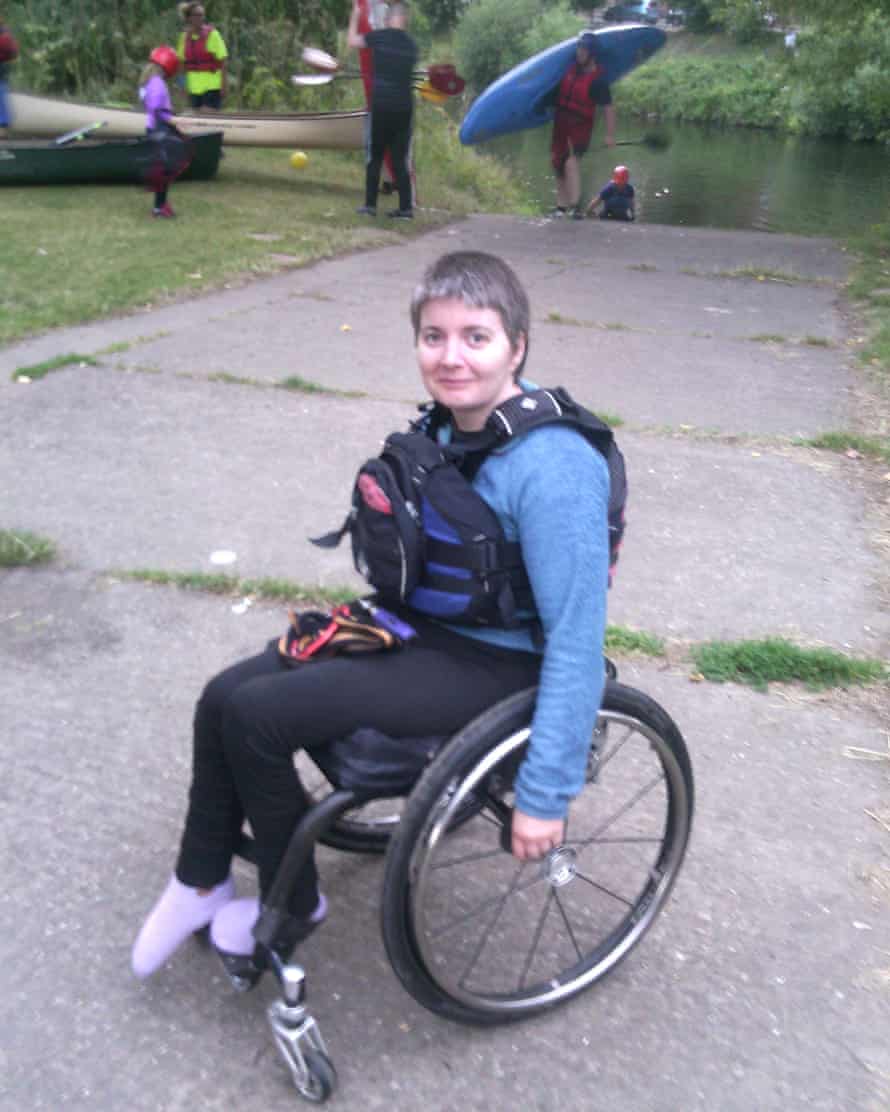
Dear Ruth,
First of all, you can forget about all those ambitions you have of being a pilot, or joining the army … It isn’t going to happen as you’re going to have a spinal injury soon that will make you paraplegic. Don’t be too horrified: it isn’t the end of the world and you will survive and thrive. The first few weeks on bedrest is horrible, but it will get better as you get your independence back.
You will fight fiercely to keep your independence, but perhaps you can ask for help occasionally – it isn’t a sign of weakness. Some people actually like helping you and get a sense of fulfilment from it, especially your family; be kind to them, as they only want to support you.
After your accident you will live by a list of what makes a successful life (go to university, get a career, financial independence, get married, have kids etc) but there is no need to rush it. Your older self has run out of things to do on your list! Kick back and have fun a bit.
